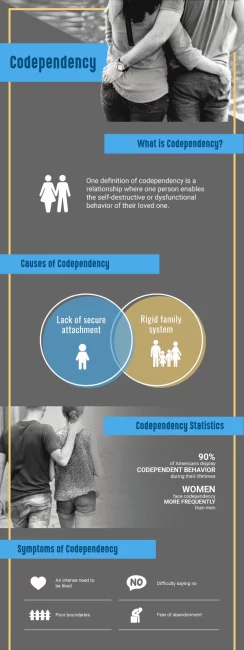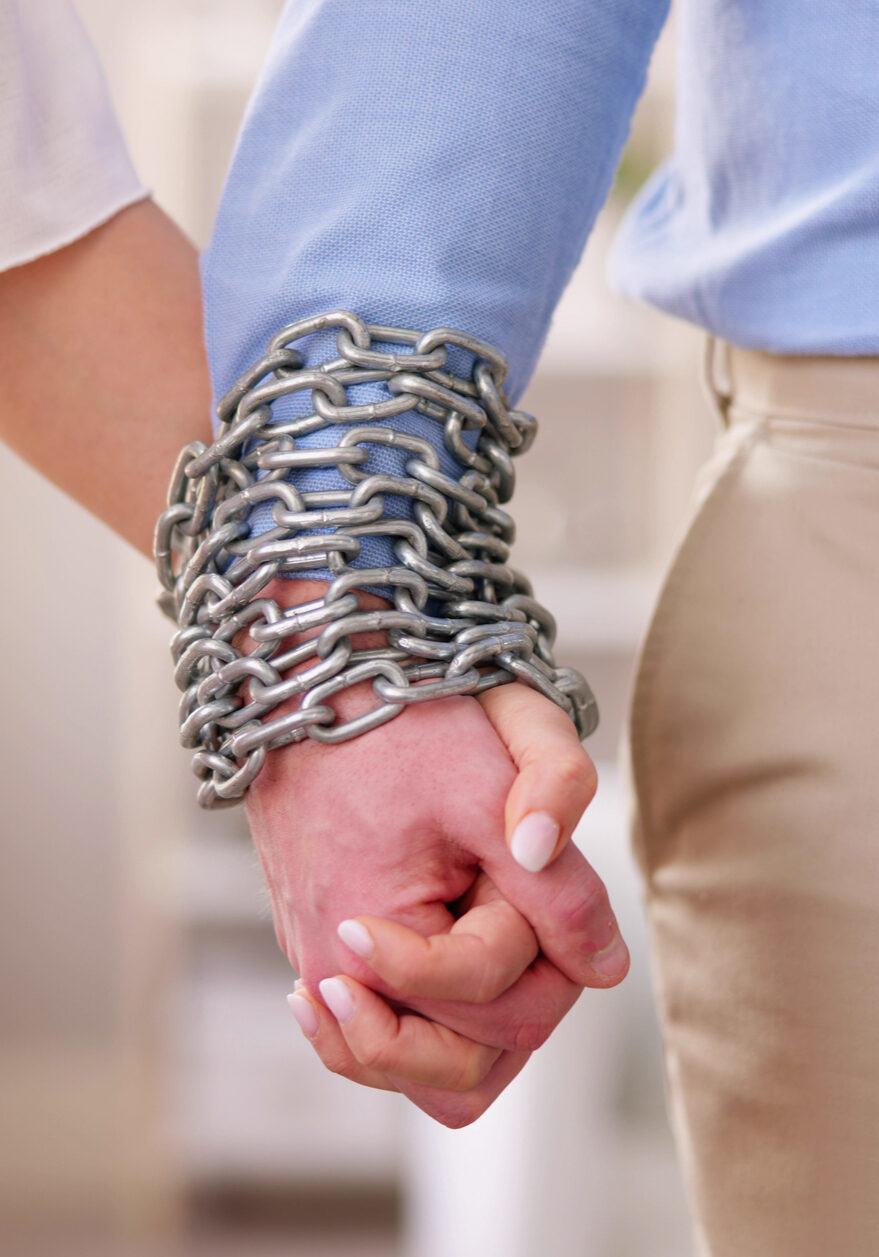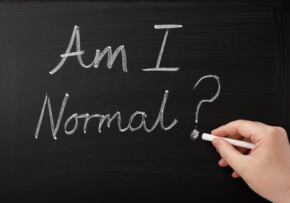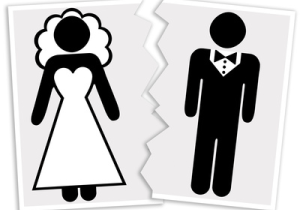Signs of Codependence
- Excessive Caretaking: Codependent individuals often go to great lengths to take care of others, even to their own detriment. For example, they might neglect their own needs to meet the needs of others, constantly seek to please, or assume excessive responsibility for someone else's well-being.
- Difficulty Setting Boundaries: People with codependency issues often struggle to set and enforce healthy boundaries. They may have a hard time saying "no" or feel guilty when they do.
- Low Self-Esteem: Codependent individuals often have a poor self-image and seek validation and approval from others to feel worthy. They may base their self-worth on the approval of the person they are codependent on.
- Fear of Abandonment: A significant fear of being abandoned or rejected by others is common among codependent individuals. This fear can drive them to engage in behaviors aimed at keeping others close, even if it's unhealthy.
- Enabling Behavior: Codependent individuals may enable destructive behaviors in their loved ones, such as addiction, by shielding them from consequences or making excuses for them.
- Loss of Personal Identity: They may have difficulty identifying their own wants, needs, and desires separate from those of others. Their identity is often defined by their role in a relationship.
- Intense Need for Control: Codependent individuals may try to control situations, people, or outcomes as a way to manage their anxiety or maintain a sense of security.
- Difficulty with Conflict: They may avoid conflict at all costs, even when it's necessary, because they fear it will jeopardize the relationship.
- Mood Swings: Codependency can be emotionally exhausting, leading to mood swings, anxiety, and even depression.
- Neglect of Self-Care: They often neglect their own self-care and well-being in favor of caring for others.
- Caretaking in Relationships: Codependent individuals may repeatedly find themselves in relationships with people who have significant needs, such as addiction issues or emotional instability.
It's important to note that codependency exists on a spectrum, and not everyone with codependent traits will exhibit all of these signs. Additionally, these signs can vary in intensity from person to person. If you or someone you know exhibits many of these signs and it is affecting their well-being or relationships, seeking therapy or counseling can be beneficial in addressing codependency.



Are You A Love Addict?
Embrace the journey to heal your anxious attachment style. Bid farewell to constant worry and self-sabotage, and instead, embark on a path to cultivate security within yourself.
Through this transformation, you can foster healthier, more loving relationships that thrive on trust and mutual support.
It starts with a choice. Do you envision a future where you continue to experience these emotions day in and day out? Or would you like to have healthy, satisfying relationships that don't feel like emotional rollercoasters?





























